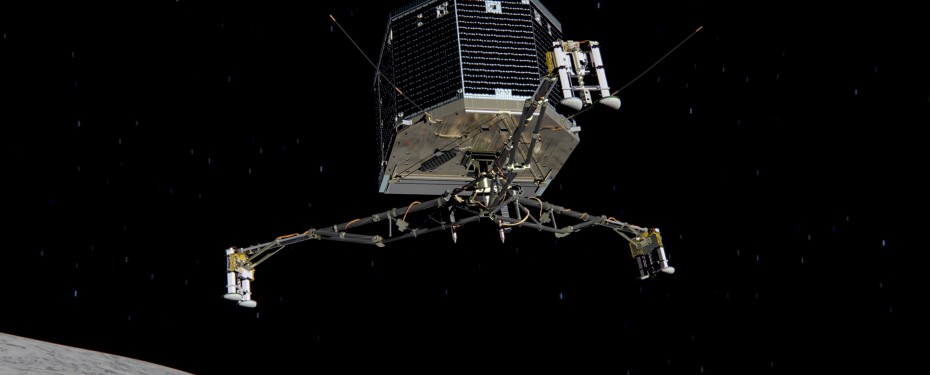Menu
Date:December 08, 2014
Born only to die as it sleeps?
November 12th witnessed the Philae lander’s bumpy arrival on 67P. The new birth had taken 10 years from when the Rosetta space probe was launched. Philae’s timeline on the comet has been one of rather wide-ranging emotions. Having emerged from Rosetta’s womb and landed in one piece, there was unbelievable elation. Yet, even from the beginning, there was the sense that not all was quite as planned – anchors failed to fire and a rather large bounce sent the lander somewhat into the shade creating a sadly limited battery life scenario.
So Philae now sleeps in the shadows on that lonely comet far away. Human life and existence seems to have more than a few parallels: from the moment of our birth, when we first touchdown on planet earth, there’s a mixture of elation and trouble, after all: “man is born to trouble as surely as sparks fly upward”. Following that we are strictly on battery power for 70 or 80 years when it finally gives out and the signal trace flatlines.
Do you not wonder what lies beyond? Will Philae re-awaken from its cold sleep as it comes around nearer the sun? And what of us, do we come to an everlasting life as we come nearer the Son? Many tend to think of death as, most likely, the end, but the Bible speaks of it as both sleep and then also as birth. Jesus words ring out across the cosmos: “I am the resurrection and the life. He who believes in me will live, even though he dies; and whoever lives and believes in me will never die. Do you believe this?” Certainly an exciting statement but also stapled to a vital question.
email: email@thatchamevangelical.org.uk
Copyright - Thatcham Evangelical Church @ 2006










